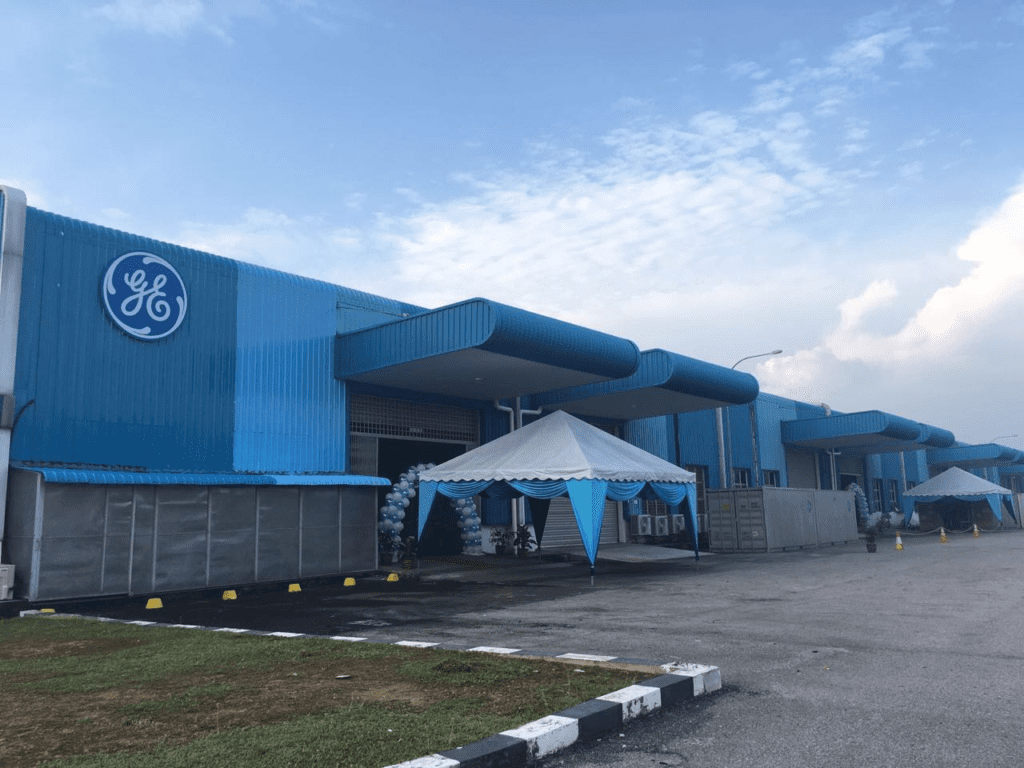Key Takeaways
- Malaysia’s diverse talent pool offers a rich tapestry of perspectives and skills, fostering innovation and creativity within your organization.
- Leveraging Malaysia’s highly educated workforce provides a competitive edge, ensuring quality output and expertise across various industries.
- With its strategic geographic location, competitive cost advantage, and government support, hiring talents in Malaysia sets the stage for sustainable business growth and success in the global market.
In today’s rapidly evolving global marketplace, businesses are constantly seeking avenues to gain a competitive edge and drive sustainable growth.
One such avenue that has increasingly captured the attention of savvy entrepreneurs and corporate leaders alike is the vibrant talent pool nestled within the heart of Southeast Asia – Malaysia.

As businesses expand their horizons and navigate the complexities of talent acquisition, understanding the allure and strategic advantages of hiring talents in Malaysia becomes paramount.
Amidst the backdrop of Malaysia’s dynamic economic landscape and rich cultural tapestry lies a reservoir of untapped potential waiting to be harnessed.
In this blog post, we embark on a journey to unravel the top five compelling reasons why businesses across industries are turning their gaze towards Malaysia as a premier destination for talent acquisition.
- Access to a Diverse Talent Pool: At the crossroads of Asia, Malaysia stands as a melting pot of cultures, languages, and traditions. This diversity extends to its workforce, where individuals hailing from various ethnic backgrounds converge to form a rich tapestry of perspectives and experiences. Embracing diversity isn’t merely a moral imperative – it’s a strategic advantage. By tapping into Malaysia’s multicultural talent pool, businesses gain access to a spectrum of insights, creativity, and innovation that transcends conventional boundaries.
- Highly Educated and Skilled Workforce: Education lies at the heart of Malaysia’s development trajectory, with significant investments made to bolster its education system and equip its workforce with the skills necessary to thrive in the 21st-century economy. From engineering marvels to artistic endeavors, Malaysian talent spans a myriad of disciplines, underpinned by a commitment to continuous learning and adaptability. Whether it’s engineering marvels or artistic endeavors, Malaysian talent spans myriad disciplines, underpinned by a commitment to continuous learning and adaptability.
- Competitive Cost Advantage: In an era where cost optimization reigns supreme, Malaysia offers an attractive proposition for businesses seeking to balance quality with affordability. With a favorable exchange rate and competitive labor costs compared to Western counterparts, hiring talents in Malaysia allows businesses to stretch their resources further without compromising on the caliber of talent. This cost advantage presents a golden opportunity for startups and multinational corporations alike to maximize their operational efficiency and bolster their bottom line.
- Strategic Geographic Location: Nestled at the confluence of major shipping routes and adjacent to burgeoning economic powerhouses, Malaysia’s strategic geographic location positions it as a gateway to the vast opportunities of the Asia-Pacific region. With unrivaled connectivity and infrastructure, businesses operating in Malaysia enjoy seamless access to regional markets, facilitating trade, investment, and collaboration on a scale unmatched elsewhere.
- Government Support and Incentives: Recognizing the pivotal role of talent in driving economic growth, the Malaysian government has implemented a suite of initiatives and incentives aimed at nurturing a conducive environment for talent acquisition and development. From tax incentives to grants and subsidies, businesses are incentivized to invest in Malaysian talent, fostering a symbiotic relationship that propels both individual advancement and national prosperity.
As we delve deeper into each of these compelling reasons, we invite you to embark on a voyage of discovery, as we uncover the myriad opportunities and strategic advantages awaiting businesses that choose to harness the power of Malaysian talent.
Join us as we unlock the potential, seize the opportunity, and redefine the future of talent acquisition in Malaysia.
Before we venture further into this article, we like to share who we are and what we do.
About 9cv9
9cv9 is a business tech startup based in Singapore and in Malaysia with a strong presence all over the world.
With over eight years of startup and business experience, and being highly involved in connecting with thousands of companies and startups, the 9cv9 team has listed some important learning points in this overview of the Top 5 Compelling Reasons to Hire Talents in Malaysia.
If your company needs recruitment and headhunting services to hire top employees, you can use 9cv9 headhunting and recruitment services to hire top talents and candidates. Find out more here, or send over an email to [email protected].
Or just post 1 free job posting here at 9cv9 Hiring Portal in under 10 minutes.
Top 5 Compelling Reasons to Hire Talents in Malaysia
- Access to a Diverse Talent Pool
- Highly Educated and Skilled Workforce
- Competitive Cost Advantage
- Strategic Geographic Location
- Government Support and Incentives
1. Access to a Diverse Talent Pool
In today’s interconnected global economy, diversity isn’t just a buzzword – it’s a strategic imperative.
Businesses that embrace diversity within their workforce unlock a wealth of benefits, ranging from enhanced creativity and innovation to improved decision-making and market responsiveness.
When it comes to accessing a diverse talent pool, Malaysia emerges as a beacon of opportunity, boasting a multicultural society that enriches its workforce with a tapestry of perspectives and experiences.
Malaysia’s Multicultural Society
- Ethnic Diversity: Malaysia’s population is a vibrant tapestry of ethnicities, including Malay, Chinese, Indian, and indigenous groups. This ethnic diversity creates a melting pot of cultures, languages, and traditions, fostering an environment where individuals from different backgrounds can thrive and contribute uniquely to the workforce.
- According to the Department of Statistics Malaysia, the country’s population comprises approximately 68.6% Bumiputera (Malay and indigenous groups), 23.4% Chinese, 7.0% Indian, and 1.0% others. This diverse demographic landscape underscores Malaysia’s multicultural ethos.
- Cultural Fusion: Malaysia’s multiculturalism isn’t just a demographic phenomenon – it’s ingrained in the fabric of everyday life. From culinary delights to festive celebrations, the fusion of Malay, Chinese, Indian, and indigenous cultures creates a dynamic and inclusive environment where individuals from diverse backgrounds feel valued and empowered.
- Examples such as the celebration of festivals like Hari Raya, Chinese New Year, Deepavali, and Gawai Dayak demonstrate the cultural diversity and inclusivity embraced within Malaysian society.

Benefits of Diversity in the Workforce
- Enhanced Innovation and Creativity: Diversity stimulates innovation by bringing together individuals with unique perspectives and problem-solving approaches. In a diverse workforce, employees are more likely to challenge conventional thinking, leading to the development of innovative solutions and products.
- Studies have found that companies in the top quartile for racial and ethnic diversity are 35% more likely to have financial returns above their respective national industry medians.
- Improved Decision-Making: Diverse teams are better equipped to anticipate and respond to market trends and customer needs. By incorporating a variety of viewpoints and experiences, organizations can make more informed decisions that resonate with diverse consumer segments.
- Research published suggests that diverse teams make better decisions up to 87% of the time compared to individuals.
- Broader Market Reach: A diverse workforce enables businesses to connect with a broader range of customers and stakeholders. By reflecting the demographics of their target markets, companies can establish stronger relationships and build trust with diverse consumer segments.

Examples of Successful Multicultural Teams in Malaysia
- Multinational Corporations: Many multinational corporations (MNCs) operating in Malaysia leverage the country’s multicultural talent pool to drive innovation and market expansion. Companies like Intel, Dell, and Shell have established diverse teams in Malaysia, harnessing the collective strengths of employees from different backgrounds to achieve business objectives.
- Startups and SMEs: Malaysia’s vibrant startup ecosystem is characterized by the collaboration and creativity of entrepreneurs from diverse cultural backgrounds. Startup hubs like Cyberjaya and Penang attract talent from around the world, fostering a culture of innovation and entrepreneurship that transcends borders.

In essence, Malaysia’s multicultural society offers businesses unparalleled access to a diverse talent pool that fuels creativity, innovation, and market competitiveness.
By embracing diversity within their workforce, businesses can tap into the collective strengths of individuals from different backgrounds, driving sustained growth and success in an increasingly globalized economy.
2. Highly Educated and Skilled Workforce
In today’s knowledge-driven economy, the quality of a country’s workforce plays a pivotal role in driving economic growth and competitiveness.
Malaysia, with its robust education system and emphasis on lifelong learning, stands out as a beacon of talent excellence in the Southeast Asian region.
In this section, we explore the key factors contributing to Malaysia’s highly educated and skilled workforce, along with examples and data showcasing its capabilities.
Malaysia’s Education System
- Quality Higher Education Institutions (HEIs): Malaysia boasts a diverse array of HEIs, including universities, colleges, and vocational institutes, offering a wide range of academic programs and professional certifications. Institutions such as Universiti Malaya consistently rank among the top universities in Asia, attracting students from both domestic and international backgrounds.
- According to QS World University Rankings, Universiti Malaya ranks 65th globally in the QS World University Rankings 2022, highlighting Malaysia’s commitment to providing quality higher education.
- Industry-Relevant Curriculum: Malaysia’s education system emphasizes the importance of aligning academic curricula with the evolving needs of industries. Programs in STEM (Science, Technology, Engineering, and Mathematics) fields, business management, and information technology are designed to equip students with practical skills and knowledge sought after by employers.
- The Malaysian government’s National Higher Education Strategic Plan 2021-2025 focuses on enhancing the quality and relevance of higher education to meet industry demands and promote innovation.
Skilled Professionals Across Industries
- Engineering and Technology: Malaysia has emerged as a hub for engineering and technology talent, with a strong emphasis on fields such as electrical engineering, computer science, and mechanical engineering. The country’s skilled workforce contributes to the success of industries ranging from electronics manufacturing to software development.
- The Malaysian Investment Development Authority (MIDA) reports that Malaysia’s electrical and electronics (E&E) industry employs around 600,000 skilled professionals and contributes significantly to the country’s GDP.
- Finance and Business Services: Kuala Lumpur, Malaysia’s capital city, serves as a regional financial hub, attracting talent in finance, accounting, and business services. With a well-developed infrastructure and regulatory framework, Malaysia offers a conducive environment for multinational corporations and financial institutions to establish their operations.
- An article reports that Kuala Lumpur ranks among the top 50 international financial centers globally, highlighting the city’s attractiveness to finance professionals and businesses.
Continuous Learning and Adaptability
- Emphasis on Lifelong Learning: Malaysia recognizes the importance of lifelong learning in enhancing the skills and employability of its workforce. Initiatives such as the Human Resources Development Fund (HRDF) provide funding support for training programs and upskilling initiatives targeted at employees across various industries.
- Adaptability and Resilience: Malaysian professionals are known for their adaptability and resilience in navigating challenges and seizing opportunities. The ability to embrace change, learn new technologies, and collaborate across diverse teams positions Malaysian talent as valuable assets in today’s dynamic and unpredictable business landscape.
Examples of Malaysia’s Skilled Workforce
- Multinational Corporations: Companies such as Intel, Dell, and General Electric have established research and development (R&D) centers in Malaysia, tapping into the country’s pool of skilled engineers and technologists to drive innovation and product development.
- Startup Ecosystem: Malaysia’s vibrant startup ecosystem is fueled by the creativity and entrepreneurship of its skilled workforce. Companies like Grab, iflix, and Carsome have emerged as success stories, leveraging Malaysia’s talent pool to disrupt industries and drive digital transformation.

In summary, Malaysia’s highly educated and skilled workforce is a testament to the country’s commitment to excellence in education and continuous learning.
With a strong emphasis on industry relevance and adaptability, Malaysian professionals are well-equipped to meet the demands of a rapidly evolving global economy, making Malaysia an attractive destination for businesses seeking top-tier talent.
3. Competitive Cost Advantage
In today’s hypercompetitive business landscape, cost optimization is a cornerstone of sustainable growth and profitability.
For businesses seeking to maximize their operational efficiency without compromising on quality, Malaysia offers a compelling proposition with its competitive cost advantage.
In this section, we delve into the factors contributing to Malaysia’s cost competitiveness and explore real-world examples that highlight the tangible benefits for businesses.
Favorable Labor Costs
- Cost-Effective Workforce: Malaysia’s labor market offers competitive wages relative to other countries in the region, making it an attractive destination for businesses looking to reduce operational costs without sacrificing talent quality.
- According to data, Malaysia’s average monthly wage in manufacturing and services sectors is significantly lower than countries like Singapore, Australia, and Japan, providing cost savings for businesses.
- Cost of Living: Malaysia boasts a relatively lower cost of living compared to many developed countries, resulting in lower overhead costs for businesses operating in the country. From office rentals to utilities and transportation, businesses can enjoy cost savings across various operational aspects.
- A report ranks Malaysia lower in terms of cost of living compared to countries like the United States, United Kingdom, and Australia, making it an attractive destination for businesses seeking cost-efficient operations.
- Weak Ringgit: The weak Ringgit, Malaysia’s currency, serves as a significant factor in lowering labor costs for businesses hiring in the country. When the Ringgit depreciates against other currencies, it reduces the cost of labor for foreign companies operating in Malaysia.
- This depreciation makes it more affordable for businesses to hire skilled professionals and workers, as their salaries and wages become relatively cheaper in comparison to currencies with stronger exchange rates. As a result, the weak Ringgit enhances Malaysia’s attractiveness as an outsourcing destination and encourages foreign investment, ultimately contributing to the growth of the country’s economy.
- According to a news report, recently, the Ringgit has fallen to a 25-year low, and is the worst performer in Asia after Yen.
Infrastructure and Business Support
- Investment Incentives: Malaysia offers a range of investment incentives and support programs to attract foreign investment and promote economic growth. These incentives may include tax exemptions, grants, and subsidies aimed at reducing the cost burden for businesses.
- The Malaysian Investment Development Authority (MIDA) provides comprehensive information on investment incentives available to businesses, including those in priority sectors such as manufacturing, technology, and services.
- Infrastructure Development: Malaysia boasts a well-developed infrastructure network, including modern transportation systems, telecommunications, and utilities. Businesses benefit from efficient logistics and connectivity, reducing operational costs associated with transportation and distribution.
- Malaysia’s continuous investments in infrastructure development, such as the development of ports, airports, and highways, contribute to a conducive business environment that supports cost-effective operations.
Malaysia’s competitive cost advantage presents a compelling value proposition for businesses looking to optimize their operational expenses while maintaining quality and efficiency.
With favorable labor costs, supportive infrastructure, and investment incentives, Malaysia offers businesses a strategic platform for growth and expansion.
By leveraging Malaysia’s cost competitiveness, businesses can enhance their competitiveness, improve profitability, and unlock new opportunities for success in the global marketplace.
4. Strategic Geographic Location
Strategic geographic location is a critical factor that can significantly impact a business’s success, particularly in today’s interconnected global economy.
Malaysia’s strategic positioning in the heart of Southeast Asia offers businesses unparalleled access to regional markets, transportation networks, and business opportunities.
In this section, we explore the strategic advantages of Malaysia’s geographic location and examine real-world examples that demonstrate its importance for businesses.
Proximity to Regional Markets
- Gateway to ASEAN: Malaysia’s central location within the Association of Southeast Asian Nations (ASEAN) region positions it as a gateway to a market of over 650 million people. Businesses operating in Malaysia can easily access neighboring countries such as Singapore, Thailand, Indonesia, and Vietnam, tapping into diverse consumer markets and supply chains.
- According to data from the ASEAN Secretariat, Malaysia’s strategic location at the crossroads of major shipping routes facilitates trade and investment flows within the ASEAN region, contributing to regional economic integration and growth.
- Access to Asia-Pacific Markets: Beyond ASEAN, Malaysia’s geographic location provides access to the broader Asia-Pacific region, including key markets such as China, India, Japan, and Australia. With growing economic integration and trade agreements, businesses in Malaysia can leverage their proximity to these markets to expand their reach and explore new business opportunities.
- The Asia-Pacific region accounts for a significant share of global GDP and trade volume, making it a lucrative market for businesses seeking growth and expansion opportunities.
Connectivity and Infrastructure
- Modern Transportation Networks: Malaysia boasts a well-developed transportation infrastructure, including modern airports, seaports, highways, and railways. Kuala Lumpur International Airport (KLIA) serves as a major air transportation hub in the region, offering direct flights to cities around the world.
- According to the Malaysia Airports Holdings Berhad (MAHB), KLIA handled over 25.3 million passengers in 2022, highlighting its importance as a key aviation gateway in Asia.
- Strategic Shipping Routes: Malaysia’s extensive coastline and strategic location along major shipping routes facilitate maritime trade and logistics. Ports such as Port Klang and Port of Tanjung Pelepas are among the busiest in the region, serving as key transshipment hubs for containerized cargo.
Malaysia’s strategic geographic location offers businesses a gateway to regional markets, connectivity to global transportation networks, and opportunities for growth and expansion.
By leveraging Malaysia’s central position in Southeast Asia and the Asia-Pacific region, businesses can enhance their competitiveness, improve supply chain efficiency, and capitalize on emerging business opportunities.
As a strategic business hub, Malaysia continues to attract investments and play a pivotal role in driving economic integration and prosperity in the region.
5. Government Support and Incentives
Government support and incentives play a crucial role in shaping the business environment and driving economic growth.
In Malaysia, the government has implemented a range of initiatives and programs aimed at attracting investments, promoting innovation, and supporting the growth of businesses across various sectors.
In this section, we explore the diverse array of government support and incentives available to businesses in Malaysia, along with real-world examples highlighting their impact.
Investment Incentives
- Tax Incentives: The Malaysian government offers various tax incentives to encourage investments and stimulate economic activity. These incentives may include tax exemptions, allowances, and incentives for specific industries or activities.
- The Malaysian Investment Development Authority (MIDA) administers tax incentives such as Pioneer Status and Investment Tax Allowance to eligible companies investing in manufacturing, services, and high-technology sectors.
- Financial Assistance: In addition to tax incentives, the government provides financial assistance in the form of grants, loans, and funding programs to support business development, innovation, and capacity building.
- Agencies such as the SME Corporation Malaysia and Malaysia Digital Economy Corporation (MDEC) offer grants and funding programs targeted at small and medium enterprises (SMEs) and technology startups to accelerate their growth and adoption of digital technologies.
Industry-Specific Incentives
- Promotion of Priority Sectors: The Malaysian government identifies priority sectors for development and provides targeted incentives to attract investments and promote growth in these sectors.
- Examples of priority sectors include manufacturing, biotechnology, healthcare, renewable energy, and information and communication technology (ICT).
- The National Automotive Policy (NAP), for instance, offers incentives to automotive manufacturers and related industries to promote the development of Malaysia’s automotive sector and attract investments in research and development (R&D) and technology adoption.
- Research and Development (R&D) Incentives: To encourage innovation and technology development, the government provides incentives and grants to support R&D activities conducted by businesses and research institutions.
- The Ministry of Science, Technology, and Innovation (MOSTI) administers various R&D grants and funding programs, such as the Industrial Research Fund (IRF) and TechnoFund, to support collaborative R&D projects and technology commercialization efforts.
Infrastructure Development
- Infrastructure Grants and Projects: The government invests in infrastructure development projects to enhance connectivity, logistics, and industrial capabilities, thereby creating a conducive environment for business growth and investment.
- Examples of infrastructure projects include the development of industrial parks, transportation networks, ports, and utilities.
- The Iskandar Malaysia development project in Johor, for instance, aims to transform the southern region into a sustainable and competitive metropolis, attracting investments in manufacturing, logistics, and services.
Government support and incentives play a pivotal role in attracting investments, promoting industry growth, and fostering innovation in Malaysia.
With a range of incentives targeted at various industries and activities, businesses in Malaysia can benefit from financial assistance, tax incentives, and infrastructure support to drive their growth and competitiveness.
By leveraging these incentives, businesses can seize opportunities, accelerate their development, and contribute to Malaysia’s economic prosperity.
Conclusion
The top five compelling reasons to hire talents in Malaysia underscore the country’s attractiveness as a strategic destination for businesses seeking growth, innovation, and competitive advantage.
From its diverse talent pool to its strategic geographic location and supportive business environment, Malaysia offers a myriad of opportunities for businesses to thrive and succeed in today’s dynamic global marketplace.
First and foremost, Malaysia’s access to a diverse talent pool is a cornerstone of its appeal.
With a multicultural society and a workforce rich in perspectives and experiences, businesses can tap into a wealth of creativity, innovation, and problem-solving capabilities.
By embracing diversity, businesses can foster inclusive cultures that drive innovation and excellence.
Furthermore, Malaysia’s highly educated and skilled workforce sets it apart as a hub for talent excellence.
With a robust education system and a commitment to lifelong learning, Malaysian professionals are equipped with the knowledge and skills necessary to excel in a variety of industries.
Whether in engineering, finance, or technology, Malaysia’s talent pool is well-prepared to meet the evolving demands of the global economy.
In addition, Malaysia’s competitive cost advantage offers businesses significant savings without compromising on quality.
From favorable labor costs to cost-effective infrastructure and business support, Malaysia provides a conducive environment for businesses to optimize their operational expenses and enhance their bottom line.
Moreover, Malaysia’s strategic geographic location serves as a gateway to regional markets and global opportunities.
With unrivaled connectivity and access to key markets in ASEAN and the Asia-Pacific region, businesses in Malaysia can expand their reach, diversify their customer base, and capitalize on emerging trends and opportunities.
Lastly, government support and incentives further enhance Malaysia’s appeal as a business destination.
With a range of incentives targeted at investment, innovation, and industry development, businesses can leverage government support to accelerate their growth, drive innovation, and enhance their competitiveness.
In summary, the top five compelling reasons to hire talents in Malaysia paint a compelling picture of Malaysia as a strategic business hub with unparalleled opportunities for growth and success.
By tapping into Malaysia’s diverse talent pool, skilled workforce, competitive cost advantage, strategic location, and government support, businesses can unlock their full potential and chart a path to sustained growth and prosperity in the global marketplace.
Whether you’re a multinational corporation, a startup, or an SME, Malaysia offers a wealth of opportunities to thrive, innovate, and succeed.
If your company needs HR, hiring, or corporate services, you can use 9cv9 hiring and recruitment services. Book a consultation slot here, or send over an email to [email protected].
If you find this article useful, why not share it with your hiring manager and C-level suite friends and also leave a nice comment below?
We, at the 9cv9 Research Team, strive to bring the latest and most meaningful data, guides, and statistics to your doorstep.
To get access to top-quality guides, click over to 9cv9 Blog.
People Also Ask
How to hire people in Malaysia?
To hire people in Malaysia, follow these steps: 1. Understand Malaysian employment laws. 2. Advertise job openings on local job portals such as 9cv9. 3. Conduct interviews and assessments. 4. Offer a competitive salary and benefits package. 5. Prepare employment contracts adhering to Malaysian regulations. 6. Onboard new hires effectively.
How do I find and hire talents?
To find and hire talents: 1. Define job requirements. 2. Utilize job boards, social media, and professional networks for recruitment. 3. Conduct thorough interviews and assessments. 4. Offer competitive compensation and benefits. 5. Provide clear onboarding and growth opportunities.
How to find a good job in Malaysia?
To find a good job in Malaysia: 1. Research industries and companies. 2. Use job portals like 9cv9 and LinkedIn. 3. Network with professionals and attend career fairs. 4. Tailor your resume and cover letter. 5. Prepare for interviews and showcase your skills and experience.































![Writing A Good CV [6 Tips To Improve Your CV] 6 Tips To Improve Your CV](https://blog.9cv9.com/wp-content/uploads/2020/06/2020-06-02-2-100x70.png)


